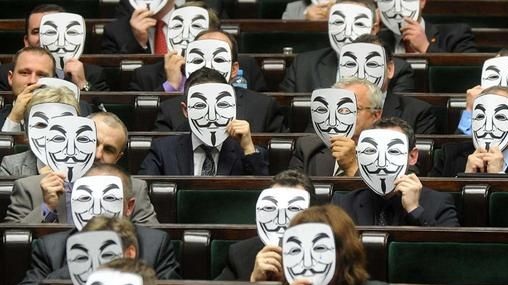European Union Rejects ACTA by a Landslide

The European Union has, by a landslide, voted to reject the Anti-Counterfeiting Trade Agreement (ACTA) Treaty:
'European Parliament lawmakers voted against the agreement by 478 to 39 with 165 abstentions, meaning the proposed law will have to be renegotiated by the European Commission, the EU's executive.European Parliament President Martin Schulz said in a statement after the vote that legislators were not against intellectual property rights but that ACTA left too much room for abuses and raised "concern about its impact on consumers' privacy and civil liberties, on innovation and the free flow of information".ACTA took four years to negotiate and has already been signed by several of the European Union's big trading partners, including the United States, Canada and Japan. Its rejection is likely to complicate free-trade talks, officials say.'
For an international treaty to work well all the major players need to be at the table. Europe just flipped the table and walked out of the room. "The Anti-Counterfeiting Trade Agreement is dead" is the buzz phrase bouncing around the blogosphere. One might think the jingle refers to the Wicked Witch of West. It may as well-- in February many tremendous protests erupted all around Europe denouncing the treaty as a wolf in sheep's clothing.
ACTA even spurred Anonymous into action, well-known now for zealously guarding the free and open Internet. In fact the EU Parliament and Polish government's websites were shut down by "denial of service attacks."
'The anti-Acta movement has also been widely adopted by members of the Anonymous activist collective, which has claimed responsibility for putting high-profile government websites out of action, including that of the Polish prime minister.Speaking at the London protest Loz Kaye, leader of the Pirate Party UK, dismissed worries that aligning closely with Anonymous - some of whose members have carried out various illegal activities online - was harmful to their cause."What we've seen is a whole wave of people coming out on the streets right across Europe," he told the BBC.The Open Rights Group's Jim Killock called the agreement "undemocratic""Some people have been called extreme, but equally, Amnesty International, Médecins Sans Frontières have spoken out. Even The Economist, which is hardly radical, has described the treaty as potentially draconian.'
The detractors of ACTA claimed that while the stated purpose of the treaty is to curtail international piracy of copyrighted material, in practice it would be used to curtail speech, expression, and even net access. Proponents of the treaty cited concerns about protecting artists, musicians, and companies from having their material dredged from the deeps of Pirate Bay.
But at the end of the day, at least in Europe, in the face of mounting demonstrations across the small continent, the policy makers decided to dramatically side with the public.
For those that care about Internet Freedom this news is a ray of sunshine. Across the Atlantic Ocean, a new "Technology Revolution" manifesto was announced by Congressman Ron Paul's libertarian Campaign for Liberty just a day after Europe rejected ACTA. Perhaps this is just part of a bigger stream of events coming down the pipeline concerning net freedom. Are international treaties sparking international resistance? Perhaps the manifesto and the new Declaration of Internet Freedom are evidence of this.
While the struggle between the pro-copyright enforcement and pro-Internet Freedom camps is far from over, these events in Europe mark a decisive turn of the tide.



